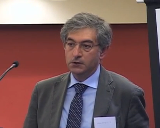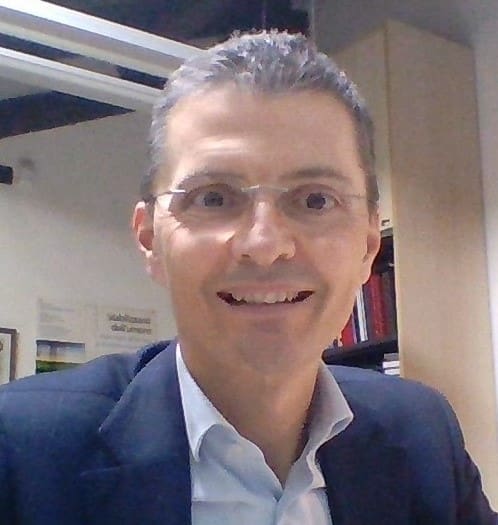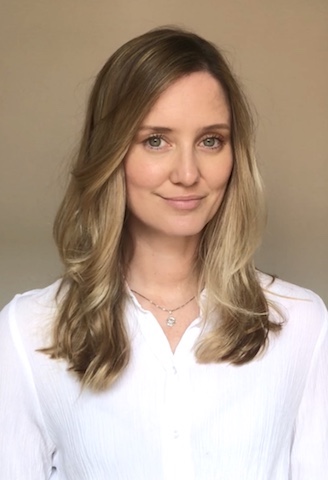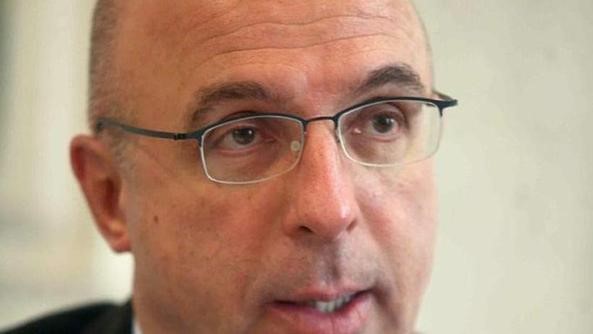Studying at the University of Verona
Here you can find information on the organisational aspects of the Programme, lecture timetables, learning activities and useful contact details for your time at the University, from enrolment to graduation.
Academic calendar
The academic calendar shows the deadlines and scheduled events that are relevant to students, teaching and technical-administrative staff of the University. Public holidays and University closures are also indicated. The academic year normally begins on 1 October each year and ends on 30 September of the following year.
Course calendar
The Academic Calendar sets out the degree programme lecture and exam timetables, as well as the relevant university closure dates..
| Period | From | To |
|---|---|---|
| TERP ROV 2^ ANNO - 1^ SEMESTRE | Oct 4, 2017 | Dec 7, 2017 |
| TERP ROV 1^ ANNO - 1^ SEMESTRE | Oct 9, 2017 | Dec 15, 2017 |
| TERP ROV 3^ ANNO - 1^ SEMESTRE | Oct 9, 2017 | Nov 8, 2017 |
| TERP ROV 3^ ANNO - 2^ SEMESTRE | Feb 5, 2018 | Mar 16, 2018 |
| TERP ROV 1^ ANNO - 2^ SEMESTRE (1 periodo) | Feb 5, 2018 | Mar 9, 2018 |
| TERP ROV 2^ ANNO - 2^ SEMESTRE | Mar 12, 2018 | May 18, 2018 |
| TERP ROV 1^ ANNO - 2^ SEMESTRE (2 periodo) | Apr 11, 2018 | May 25, 2018 |
| Session | From | To |
|---|---|---|
| TERP ROV sessione invernale 2 anno | Dec 18, 2017 | Jan 26, 2018 |
| TERP ROV sessione invernale 1 e 3 anno | Jan 8, 2018 | Feb 2, 2018 |
| TERP ROV sessione estiva 2 anno | May 28, 2018 | Jun 22, 2018 |
| TERP ROV sessione estiva 1 e 3 anno | Jul 2, 2018 | Jul 31, 2018 |
| TERP ROV sessione autunnale | Sep 3, 2018 | Sep 28, 2018 |
| Session | From | To |
|---|---|---|
| TERP SESSIONE AUTUNNALE | Nov 1, 2018 | Dec 31, 2018 |
| TERP SESSIONE PRIMAVERILE | Mar 1, 2019 | Apr 30, 2019 |
| Period | From | To |
|---|---|---|
| All Saints Day | Nov 1, 2017 | Nov 1, 2017 |
| Immaculate Conception | Dec 8, 2017 | Dec 8, 2017 |
| Christmas break | Dec 22, 2017 | Jan 7, 2018 |
| Easter break | Mar 30, 2018 | Apr 3, 2018 |
| Liberation Day | Apr 25, 2018 | Apr 25, 2018 |
| Labour Day | May 1, 2018 | May 1, 2018 |
| Republic Day | Jun 2, 2018 | Jun 2, 2018 |
| Festa S. Patrono | Aug 5, 2018 | Aug 5, 2018 |
| VACANZE ESTIVE | Aug 6, 2018 | Aug 19, 2018 |
| Description | Period | From | To |
|---|---|---|---|
| TERP ROV 3 ANNO - 1 SEMESTRE | TERP ROV 3 ANNO - 1 SEMESTRE | Nov 8, 2017 | Dec 15, 2017 |
| TERP ROV 2 ANNO - 2 SEMESTRE 1 periodo | TERP ROV 2 ANNO - 2 SEMESTRE 1 periodo | Jan 29, 2018 | Mar 9, 2018 |
| TERP ROV 1 ANNO - 2 SEMESTRE 1 periodo | TERP ROV 1 ANNO - 2 SEMESTRE 1 periodo | Mar 12, 2018 | Apr 10, 2018 |
| TERP ROV 3 ANNO - 2 SEMESTRE 1 periodo | TERP ROV 3 ANNO - 2 SEMESTRE 1 periodo | Mar 19, 2018 | May 4, 2018 |
| TERP ROV 3 ANNO - 2 SEMESTRE 2 periodo | TERP ROV 3 ANNO - 2 SEMESTRE 2 periodo | May 14, 2018 | Jun 22, 2018 |
| TERP ROV 1 ANNO - 2 SEMESTRE 2 periodo | TERP ROV 1 ANNO - 2 SEMESTRE 2 periodo | May 28, 2018 | Jun 22, 2018 |
| TERP ROV 2 ANNO - 2 SEMESTRE 2 periodo | TERP ROV 2 ANNO - 2 SEMESTRE 2 periodo | Jun 25, 2018 | Jul 27, 2018 |
| TERP ROV 2 ANNO - 2 SEMESTRE 3 periodo | TERP ROV 2 ANNO - 2 SEMESTRE 3 periodo | Sep 3, 2018 | Sep 28, 2018 |
Exam calendar
Exam dates and rounds are managed by the relevant Medicine Teaching and Student Services Unit.
To view all the exam sessions available, please use the Exam dashboard on ESSE3.
If you forgot your login details or have problems logging in, please contact the relevant IT HelpDesk, or check the login details recovery web page.
Should you have any doubts or questions, please check the Enrollment FAQs
Academic staff
 loretta.berti@univr.it
loretta.berti@univr.it
 borghesi.a@mail.apss.tn.it
borghesi.a@mail.apss.tn.it
 silvia.chiesa@apss.tn.it
silvia.chiesa@apss.tn.it
 marco.ferdeghini@univr.it
marco.ferdeghini@univr.it
 045 812 47 84 (Segreteria) 045 802 74 89 (Segreteria di Istituto)
045 812 47 84 (Segreteria) 045 802 74 89 (Segreteria di Istituto)
 valentina.fornari@virgilio.it
valentina.fornari@virgilio.it
 drgasp@tin.it
drgasp@tin.it
 enrica.latterini@apss.tn.it
enrica.latterini@apss.tn.it
 renata.lazzeri@apss.tn.it
renata.lazzeri@apss.tn.it
 anja.meyer@univr.it
anja.meyer@univr.it
 rocco.micciolo@economia.unitn.it
rocco.micciolo@economia.unitn.it
 antonio.nocera@univr.it
antonio.nocera@univr.it
Study Plan
The Study Plan includes all modules, teaching and learning activities that each student will need to undertake during their time at the University.
Please select your Study Plan based on your enrollment year.
1° Year
| Modules | Credits | TAF | SSD |
|---|
2° Year activated in the A.Y. 2018/2019
| Modules | Credits | TAF | SSD |
|---|
3° Year activated in the A.Y. 2019/2020
| Modules | Credits | TAF | SSD |
|---|
| Modules | Credits | TAF | SSD |
|---|
| Modules | Credits | TAF | SSD |
|---|
| Modules | Credits | TAF | SSD |
|---|
Legend | Type of training activity (TTA)
TAF (Type of Educational Activity) All courses and activities are classified into different types of educational activities, indicated by a letter.
Foundations and methods of treatment in psychiatry (2018/2019)
The teaching is organized as follows:
FARMACOLOGIA GENERALE
Credits
1
Period
FISIO ROV 2^ ANNO - 1^ SEMESTRE
Location
ROVERETO
Academic staff
Learning outcomes
------------------------
MM: PSICOFARMACOLOGIA
------------------------
The main aims of this module is to train students to: recongise the main psychopathological dimensions that can be treated with pharmacological interventions; understand the role and limitations of antipsychotics, antidepressants, mood stabilisers and benzodiazepines in the treatment f mental disorders.
------------------------
MM: FARMACOLOGIA GENERALE
------------------------
------------------------
MM: PRINCIPI GENERALI DI PSICOTERAPIA
------------------------
To promote an overall knowledge of the general principles of Psychotherapy in the context of Community Psychiatry, of the development and history of dynamic psychology, of psychotherapy techniques that can be used in the daily practice with the typical patient of the Rehabilitation Technician
------------------------
MM: METODOLOGIE E TECNICHE RIABILITATIVE
------------------------
------------------------
MM: TECNICHE DI DERIVAZIONE ESPRESSIVA E ARTISTICA IN RIABILITAZIONE
------------------------
Program
------------------------
MM: PSICOFARMACOLOGIA
------------------------
1-Organisation of mental health services and role of pharmacological treatments 2-Main psychopathological dimensions target of pharmacological treatments: - Anxiety disorders - Affective disorders - Psychotic disorders 3-Psychopharmacological treatments: - Antidepressants: (a) mechanism of action; (b) efficacy; (c) side-effects and tolerability issues - Antipsychotics: (a) mechanism of action; (b) efficacy; (c) side-effects and tolerability issues - Benzodiazepines: (a) mechanism of action; (b) efficacy; (c) side-effects and tolerability issues - Mood stabilisers: (a) mechanism of action; (b) efficacy; (c) side-effects and tolerability issues
------------------------
MM: FARMACOLOGIA GENERALE
------------------------
------------------------
MM: PRINCIPI GENERALI DI PSICOTERAPIA
------------------------
Programme: -Definition of psychotherapy as a form of help and care through interpersonal relationship. Professional psychotherapy in the strict sense and in a broad sense; importance of the relationship and how to establish it properly. - Dynamic Psychology: Jean-Martin Charcot and the psychogenic theory of hysteria, Sigmund Freud and psychoanalysis, Analytical Psychology, Carl Jung and Alfred Adler's individual psychology and Pierre Janet's psychological analysis. The phenomenological-existential psychotherapy; the philosophical context of reference: Edmund Husserl, Martin Heidegger, Jean-Paul Sartre; authors: Ludwig Binswanger, Eugène Minkowski, Ronald Laing, David Cooper. -Cognitive-behavioral psychotherapies: Albert Ellis, Aaron Beck. Humanistic psychotherapies: Carl Rogers and Rollo May; Erich Fromm; influences on psychiatry of the relational-therapy self-help movement - The transition from a linear to a circular causality model in the Palo Alto school: theory of the double bind, paradoxes and controparadoxes. The "systemic" School of Milan: theorizing, circularity, positive connotation and restructuring at the end of session. The linguistic meta-model in psychotherapy; the uncommon hypnotic approach of Milton Erickson
------------------------
MM: METODOLOGIE E TECNICHE RIABILITATIVE
------------------------
------------------------
MM: TECNICHE DI DERIVAZIONE ESPRESSIVA E ARTISTICA IN RIABILITAZIONE
------------------------
Bibliography
| Author | Title | Publishing house | Year | ISBN | Notes |
|---|---|---|---|---|---|
| Tatarelli | Manuale di psichiatria e salute mentale per le lauree sanitarie | Piccin | 2009 | 9788829919628 | |
| Kaplan & Sadock | Psichiatria. Manuale di scienze del comportamento e psichiatria clinica (Edizione 8) | centro scientifico internazionale | 2002 | 8880840290 | |
| Robert Paul Liberman | Il recovery della disabilità | Giovanni Fioriti Editore | 2012 | ||
| Saraceno B. | La fine dell'intrattenimento. Manuale di riabilitazione psichiatrica | ETAS, Milano | 2000 | ||
| Paola Carozza | La psichiatria di comunità | FrancoAngeli | 2010 | ||
| Venditelli | L'intervento cognitivo-comportamentale di gruppo nel servizio psichiatrico di diagnosi e cura | Centro scientifico editore | 2008 | ||
| Ronald D. Laing | L'io diviso | Biblioteca Einaudi | 2001 | ||
| Mike Slade | Personal recovery | Il pensiero scientifico editore | 2011 | ||
| Paola Carozza | Principi di riabilitazione psichiatrica | FrancoAngeli | 2006 | ||
| L.R. Mosher L. Burti | Psichiatria territoriale | Centro scientifico editore | 2002 | ||
| Antonio Maone e Barbara D'Avanzo | Recovery. Nuovi paradigmi per la salute mentale | Raffaello Cortina Editore | 2015 | ||
| Douglas Turkington et al. | Tornare alla vita e alla normalità | edi-ermes | 2012 | ||
| Caterina R. | Che cosa sono le Arti-terapie | Carocci editore | 2005 |
Examination Methods
------------------------
MM: PSICOFARMACOLOGIA
------------------------
Oral test
------------------------
MM: FARMACOLOGIA GENERALE
------------------------
------------------------
MM: PRINCIPI GENERALI DI PSICOTERAPIA
------------------------
Written, multiple-choice examination
------------------------
MM: METODOLOGIE E TECNICHE RIABILITATIVE
------------------------
------------------------
MM: TECNICHE DI DERIVAZIONE ESPRESSIVA E ARTISTICA IN RIABILITAZIONE
------------------------
Career prospects
Module/Programme news
News for students
There you will find information, resources and services useful during your time at the University (Student’s exam record, your study plan on ESSE3, Distance Learning courses, university email account, office forms, administrative procedures, etc.). You can log into MyUnivr with your GIA login details: only in this way will you be able to receive notification of all the notices from your teachers and your secretariat via email and soon also via the Univr app.
Orario lezioni
Documents
| Title | Info File |
|---|---|
|
|
pdf, it, 66 KB, 22/09/23 |
|
|
pdf, it, 293 KB, 12/04/24 |
|
|
pdf, it, 259 KB, 10/04/24 |
|
|
pdf, it, 32 KB, 05/03/24 |
|
|
pdf, it, 1453 KB, 15/02/24 |
Gestione carriere
Appelli d'esame
AVVISO IMPORTANTE
Documents
| Title | Info File |
|---|---|
|
|
pdf, it, 313 KB, 02/10/23 |
Student login and resources
Attività Seminariali/a scelta dello studente
Attività Seminariali/a scelta dello studente
Tirocinio professionalizzante
Documents
| Title | Info File |
|---|---|
|
|
pdf, it, 146 KB, 15/02/24 |

















